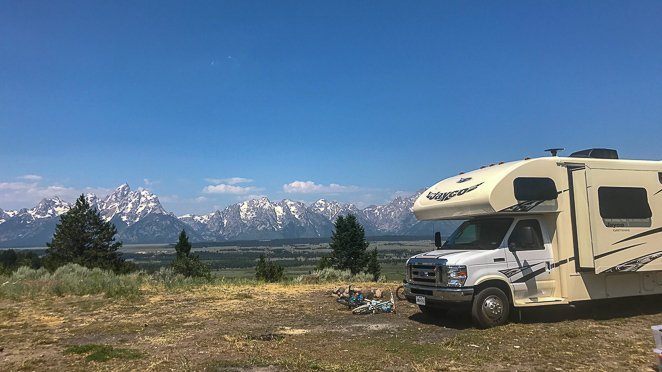

- SMALL CAMPER BOONDOCKING SOLAR HOW TO
- SMALL CAMPER BOONDOCKING SOLAR GENERATOR
- SMALL CAMPER BOONDOCKING SOLAR PORTABLE
- SMALL CAMPER BOONDOCKING SOLAR WINDOWS
So, don’t expect your 1,800-watt generator to run your air conditioner if you are anywhere above sea level.

That means that a 3,500-watt generator is only producing a little over 3,000 watts in the Moab desert (at 4,000’).

Keep in mind that generators lose about 3.5% of the output for every 1,000 feet increase in elevation (or simply put, 10% for every 3,000 feet for easier math). Some generators are dual fuel to help with the “running out of gas” problem, but propane is as efficient as gasoline when producing energy. You must also be monitoring the gas tank to keep from running out of fuel. Be mindful of exhaust fumes and wind to prevent carbon monoxide buildup in your camper or your neighbor’s camper. Either way, there’s no denying that generators can be loud. Imagine you are out in nature enjoying the peaceful morning sounds of birds chirping, the babbling brook and your neighbor fires up their genny and replaces those sounds with, “whhhhrrrrrrrrrrrr.” The noise might not bother some, but maybe make others annoyed or really mad. The largest complaint about generators would be the noise of operation. Finally, because a generator works anywhere, you can park anywhere: under trees, in snow (RV covered), chronically cloudy areas (think Seattle), or anywhere else where solar is hindered. Most solar setups won’t come near the wattage of a 3,000-watt generator, which showcases the rate of charging as a benefit to generators. A generator that size can run any appliance and even an air conditioner while charging your battery bank at the same time. Many RVers find 3,000-3,500-watt generators to be a nice sweet-spot.
SMALL CAMPER BOONDOCKING SOLAR PORTABLE
Portable generators range in size from 1,800 watts to above 5,000 watts. They are on-demand power sources that will continue for as long as you can keep them fueled. Generators are quick and easy power sources for a cost-effective solution for boondocking. That leaves us with generators and solar power, with much of this blog being about solar. I’m obviously not looking at shore power in this blog since we are dealing with boondocking. Wind turbines are a possibility, but they just aren’t efficient enough, yet, to justify the cost and equipment setup/breakdown for RV usage. There are three main sources of power for an RV: shore power, generators, and solar. Park under trees (if you don’t use solar) to shade the RV from the radiant heating in the sun.
SMALL CAMPER BOONDOCKING SOLAR WINDOWS
Open windows and doors to create drafts instead of using air conditioning.

Open window shades when it isn’t too hot to utilize natural light instead of house lights. Lastly, utilizing nature instead of the conveniences of the RV will help. Unplug electronics or even turn circuit breakers off at the panel when not being used to eliminate that power loss. That means that even when not turned on or being used, they are drawing a very small amount of power from the receptacle. Just turn it on when you need a shower, and then turn it off. More importantly, if you can go without constant hot water, you can save battery power and propane. When boondocking, refilling propane is often an easier option than creating electricity. Many RVs have the option of propane or electric for refrigerators and water heaters. Simply put, if you don’t need it at that exact moment, turn it off. Conserving energy resources like electricity and propane are key.
SMALL CAMPER BOONDOCKING SOLAR HOW TO
You should consult a licensed electrician for those details if it is above your knowledge level.īefore learning how to plan your system, you need to understand and live by a simple principle while boondocking. What you won’t find here is specific advice on how to wire, what specific products to buy, or specific designs. I will go over the basics and some of the finer details of electrical use and setup in order to help you understand the system you need for your style of boondocking. So, you want to do more boondocking but want to make sure your electrical system is ready for the challenge of off-grid living? You either have no clue where to begin or you just want to brush up your knowledge and make sure you haven’t missed any steps in your planning.


 0 kommentar(er)
0 kommentar(er)
